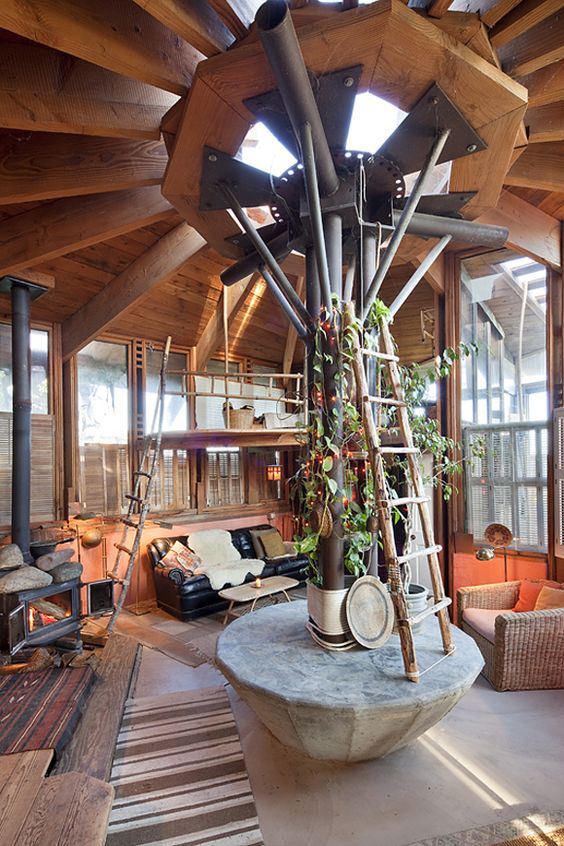PHOTO BY KODIAK GREENWOOD
With the current economic downturn in Nigeria, which has caused many sectors of the economy great strain, but which has also opened up great opportunities for self-reliance, is sustainability set to become the new trend across the different sectors, especially real estate?
There is no doubt that from this point forward it can no longer be business as usual if we are to see the resurrection of our economy any time soon and if sectors and industries are to survive this storm. In Nigeria we now have to learn to use our own resources and to do so wisely which brings to mind the issue of sustainability. Sustainability is embedded in the notion that as we strive to meet the needs of the present generation, we take care to ensure that we do so without compromising the ability of the future generation to meet their own needs. Clearly Nigeria has not operated on this principle in the most optimal way and is now being forced to start taking this concept much further than just a global ideology.
So what does this have to do with real estate? A lot, is the short answer to this question.
Property and construction in general has the largest single share in global environmental degradation and impairment of human well-being. Buildings play a tremendous role in the huge share of energy, electricity, water and materials that is consumed in our world today. However at the same time, the construction sector has the greatest potential to deliver significant cuts in CO2 emissions and to inspire a whole new trend of energy efficiency and waste minimization worldwide especially in the much needed parts of the world like Nigeria. There are ample opportunities right now for the Nigerian real estate to start looking more closely at the development of ‘green’ buildings and construction. Not only does this introduce the reduction of the overall impact of built up areas on human health and the natural environment by more efficient use of energy, water, and other resources, to reduce waste, pollution and environmental degradation, this ultimately also translates to the bottom line of cost savings. Actions by developers to use renewable energy, reduce waste, conserve water and recycle building materials are grounded in economic decisions to help reduce operating expenses and to mitigate energy price risks. Simply put, sustainable practices in real estate builds value.
Sustainability is not just another trend to start in Nigeria, but one that can deeply impact the real estate business over the long term. It entails more than just eco-friendly measures, it entails a much wider scale impact across the board. For example the work and home environment is enhanced by better air quality, less noise pollution and greater access to natural light in sustainable buildings which generally tends to lead to increase in productivity levels. A more productive work force equates to a better economy overall.
Waste minimization and less dependency on increasingly scarce and expensive fossil resources lowers operation costs. The fuel scarcity that is consistently repeated in Nigeria is a clear advocate for more sustainable means of operation in real estate. Volatile energy make for the increasingly attractive introduction of more affordable green technologies in construction and for more energy saving materials. The current economic climate has certainly caused a shift towards sustainable real estate.
Tenant demand for greener homes and workplaces will also become among the strongest drivers in the move towards more sustainable real estate. With service charges typically being part of the top operating expenses for buildings and tenants, sustainable buildings that can conserve up to 30% on average more than conventional buildings will obviously become more attractive for tenants. For property owners and investors satisfying these tenant demands yields the benefits of increased occupancy rates which make it easier for higher rent reviews in the future and thereby eventually resulting in higher building values.
There is however the flip side of the business case for greener buildings and a sustainable real estate, which is that the initial construction costs and even costs of retro-fitting properties to become sustainable buildings are exorbitantly high. It is true that green buildings are often slightly more costly to construct but typically they have proven to be less expensive to maintain and operate in the long run, so the total costs over the life of the property are in fact less. Available data shows that sustainable buildings do command higher rents and lower vacancies, lease quicker, and have lower energy and other operating expenses than conventional buildings, together yielding greater net incomes.
Perhaps as inevitable as sustainable real estate seems to be the only way to progressively move forward in Nigerian real estate, it is without much surprise that such change will not come easily. Costs implications, expertise and technology will no doubt present the challenge to this change, but even small steps towards the recognition of greater sustainability measures in the real estate sector is still some form of victory in a long drawn battle.
Fieldco is an advocate of sustainable measures, our property management team remain trained and abreast of energy saving means of managing our facilities and seek to educate on and implement sustainable strategies on all our properties.
For further information of our services, we can be contacted on customerservice@fieldcolimited.com

